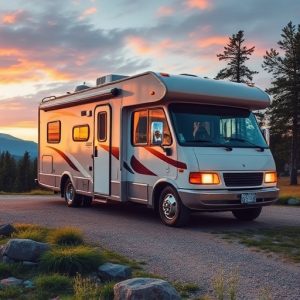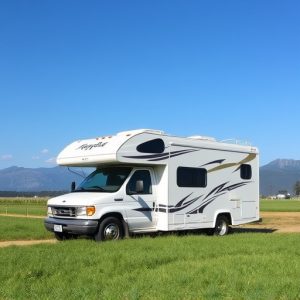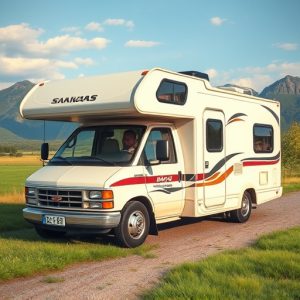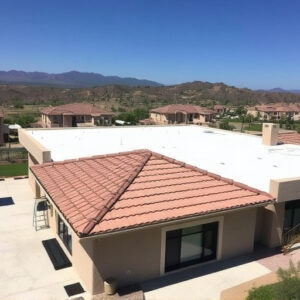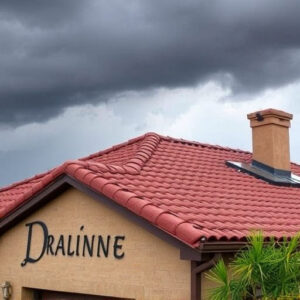Efficient RV Utility Management: Maximizing Comfort and Saving Energy During Travel
To optimize your RV travel experience, it's crucial to master energy management, water system …….

To optimize your RV travel experience, it's crucial to master energy management, water system maintenance, and climate control within your vehicle. Efficient power use, through understanding your dual electrical systems and selecting energy-efficient appliances and LED lighting, can significantly reduce costs and enhance comfort. Regular monitoring of freshwater tanks, with flushing and filtering to ensure clean drinking water, is as important as maintaining the quality of grey and black water tanks for sanitation and odor control. Heating and cooling systems should be regularly inspected, cleaned, and properly sized for your RV to provide year-round comfort. Additionally, adherence to sanitation system maintenance, including daily checks, cleaning, and appropriate waste disposal practices, is essential for a hygienic and problem-free journey. By following these RV Travel Tips, you can ensure a seamless, cost-effective, and enjoyable travel experience, with a focus on sustainability and environmental stewardship.
Embarking on RV travel offers unparalleled freedom and adventure, but to ensure your journey is seamless and comfortable, mastery over your RV’s utilities and systems is key. This comprehensive guide provides essential tips for optimizing power management, maintaining water systems and tanks, and ensuring your RV’s heating and cooling systems deliver comfort regardless of location. Additionally, understanding sanitation and waste handling best practices will keep your travels hygienic and environmentally responsible. With these RV travel tips in hand, you’ll navigate the road with confidence, turning every trip into a memorable experience.
- Optimizing Power Management in Your RV: Strategies for Energy Efficiency
- Water Systems and Tank Maintenance: Keeping Your RV Hydrated and Clean
- Navigating RV Heating and Cooling Systems for Comfort Anywhere
- Understanding RV Sanitation and Waste Handling Best Practices
Optimizing Power Management in Your RV: Strategies for Energy Efficiency

To maintain a comfortable and cost-effective travel experience in your RV, optimizing power management is key. RV travel tips often focus on energy efficiency as it directly impacts your journey’s comfort and budget. One effective strategy is to understand your RV’s electrical system, including the different circuits for 120-volt and 12-volt systems. Utilize energy-efficient LED lighting throughout the RV to reduce power consumption. Additionally, ensure that all appliances, from the refrigerator to the air conditioner, are designed for RV use, as these are typically more efficient than their home counterparts.
Implementing smart power management involves more than just using energy-efficient products; it also requires a thoughtful approach to usage. For instance, during peak sunlight hours, consider running your air conditioner or charging devices to take advantage of solar panel generation if equipped. Similarly, during off-peak hours, perform tasks that consume larger amounts of power, like running the washing machine or dishwasher, when demand on the grid is lower. Monitoring and regulating your power usage can significantly reduce your energy bill and enhance your RV travel experience by ensuring that all systems operate at peak performance. Regularly inspect and maintain batteries, solar panels, and inverters to guarantee they are functioning optimally, as these components are integral to self-contained power management in an RV.
Water Systems and Tank Maintenance: Keeping Your RV Hydrated and Clean

When embarking on extended RV travels, maintaining your water systems and tanks is paramount to ensuring a comfortable and hygienic journey. Freshwater tank upkeep is essential for providing clean drinking water and facilitating daily activities such as washing dishes and personal hygiene. To preserve the quality of your freshwater supply, regularly flush the tank before depletion to prevent stagnation and potentially harmful bacteria from proliferating. Use a dedicated RV hose to fill the tank, avoiding garden hoses that may introduce contaminants. For added protection, consider installing a water filter system that specifically targets sediments and chlorine, ensuring potable water at all times.
On the flip side, maintaining your grey and black water tanks is crucial for both sanitation and odor control. Regular dumping of these tanks prevents overfilling, which can lead to leaks or backups. A designated waste macerator pump can assist in breaking down waste, making it easier to transport without causing blockages. Use environmentally friendly RV toilet chemicals to help break down waste more efficiently and to minimize the impact on sewage systems when disposing of waste at campground facilities. Additionally, implementing a routine of flushing each tank with a solution of bleach and water after every few uses can effectively sanitize them, deterring the growth of harmful microorganisms. By adhering to these RV travel tips for water systems and tank maintenance, you’ll ensure that your RV travels are not only pleasant but also safe and hygienic.
Navigating RV Heating and Cooling Systems for Comfort Anywhere

When embarking on RV travel, managing your heating and cooling systems is crucial for maintaining comfort regardless of the external climate. To ensure a pleasant environment inside your RV, it’s vital to understand how each system operates. During colder months or chilly nights, RV Travel Tips suggest utilizing your RV’s heating system early. This proactive approach helps maintain an even temperature throughout the vehicle. There are various types of heating systems in RVs, from electric heaters to propane-powered furnaces. For optimal performance, regularly inspect and clean your heating components. This maintenance can prevent malfunctions and ensure consistent warmth when needed.
Conversely, in warmer conditions or during the day in summer, efficient cooling becomes a priority. Employing RV Travel Tips such as using shades, reflective window coatings, and awnings can significantly reduce the heat from direct sunlight. Additionally, selecting the right size and type of air conditioner for your RV is essential. Consider the BTU (British Thermal Unit) rating appropriate for your RV’s square footage to ensure effective cooling. Regular maintenance of the cooling system, including cleaning filters and checking for refrigerant leaks, will guarantee it operates at peak efficiency, keeping you cool even in the most remote locations. By understanding and managing your RV’s heating and cooling systems effectively, you can enhance your travel experience, making any destination comfortable and enjoyable.
Understanding RV Sanitation and Waste Handling Best Practices

When embarking on an RV journey, mastery over your vehicle’s sanitation and waste handling systems is paramount for a comfortable and hassle-free travel experience. Understanding the intricacies of these systems not only ensures environmental compliance but also extends the life of your RV’s components. Proper usage of the RV’s black and gray water tanks is essential, with clear differentiation between the two. Black water tanks are reserved for toilet waste, while gray water tanks handle kitchen and shower water. Regular monitoring of tank levels is crucial to prevent overflows and potential damage.
RV travel tips suggest employing a routine that includes daily checks of your sanitation systems. This includes inspecting seals and connections for leaks, ensuring that the holding tanks are not left too full or too empty, as this can lead to odor issues or system malfunctions. Additionally, utilizing clear hoses for gray water can aid in monitoring waste levels more effectively. When disposing of waste, it’s important to follow local regulations and guidelines, often found on campground signs or in RV travel literature. Emptying tanks at designated facilities is a non-negotiable practice that keeps both your RV and the environment clean and operational. Regular cleaning of your sanitation system components, such as the toilet and waste valves, with appropriate sanitizing solutions, will further prevent odor buildup and maintain system efficiency.
RV travel is a journey that combines the comforts of home with the adventure of the open road. To ensure your experiences on the road are as seamless and enjoyable as possible, it’s crucial to manage your RV’s utilities and systems effectively. This article has outlined key strategies for optimizing power usage, maintaining water systems and tanks, ensuring proper heating and cooling, and adhering to sanitation best practices. By implementing these RV travel tips, you can enhance the performance of your RV, making every trip a memorable one. Remember to plan ahead, stay vigilant with regular maintenance, and always be prepared for varying climates and conditions. With these skills and knowledge in hand, you’re set to embark on RV adventures with confidence, knowing that your home away from home will serve you well.
